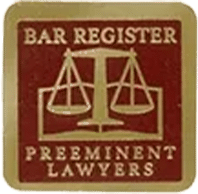
If you’ve lost your spouse because of someone else’s legal fault, a wrongful death claim can provide you with compensation for the various financial and emotional losses you’ve suffered as a result. These losses include your loss of consortium: the loss of companionship, support, and intimacy you received from your spouse.
No amount of money can bring your spouse back or fully account for the loss you’ve suffered. However, pursuing compensation for loss of consortium can offer you a measure of justice by holding those at fault for your loss accountable for their wrongful or negligent acts.

Wrongful Death Law Firm
Contact us today for your free & confidential case review. Our team will help you get the compensation that you deserve.
What Is Loss of Consortium?
Loss of consortium is a legal concept that refers to the emotional and personal loss that a person endures from the death of a spouse due to another party’s negligence or fault. A person may also experience a loss of consortium when their spouse suffers injuries severe enough that they fundamentally alter the nature of the spouses’ marital relationship.
Loss of consortium covers various non-economic harms that arise from a spouse’s death, such as:
- Loss of a spouse’s companionship, affection, and love
- Loss of a spouse’s emotional and moral support
- Loss of intimacy with a spouse, including emotional, physical, and sexual intimacy
- Loss of a spouse’s contributions to the marriage, including services like housework, cooking, parenting, or household maintenance
Who Can File a Loss of Consortium Claim in an Oklahoma Wrongful Death Case?
In Oklahoma, the personal representative of a decedent’s estate may file a wrongful death claim. In some cases, the personal representative will be the surviving spouse. In others, another party might be the only one authorized to bring such a claim. Regardless, state law authorizes the personal representative to pursue compensation for a surviving spouse’s loss of consortium and grief from their spouse’s death. Any financial recovery for those losses is payable to the surviving spouse.
We Help People Just Like You
Don’t Take Our Word For It, Hear From A Wrongful Death Client
What Accidents Can Result in Loss of Consortium?
Virtually any incident that could give rise to a personal injury claim could lead to a wrongful death claim should the injuries prove fatal. Some of the most common causes of consortium claims include:
- Motor vehicle accidents, including car, truck, motorcycle, bicycle, and pedestrian crashes
- Premises liability accidents, including slip and falls, swimming pool accidents, electrocution, fires, or animal attacks
- Defective or dangerous product accidents
- Workplace accidents
- Construction accidents
- Oil field accidents
- Medical malpractice
- Toxic exposure incidents
- Nursing home abuse and neglect
- Criminal activity, including homicide, assault, arson, or vehicular homicide

Lost a Loved one?
Contact us today for your free & confidential case review. Our team will help you get the compensation that you deserve.
What Evidence Can Prove a Loss of Consortium Claim?
To recover compensation for loss of consortium in a wrongful death claim, you must present evidence of how your spouse’s death has affected you. This evidence can demonstrate the nature of your relationship with your spouse and the emotional or physical consequences their death has had on you. You had a close, loving relationship with your spouse, and their death has had a devastating effect on your life. You deserve to be compensated for what has been taken from you.
Testimony
The evidence you’ll need to prove a loss of consortium claim likely includes testimony from yourself and others regarding your relationship with your spouse. For example, you and your family members or friends might testify about your relationship with your spouse, including:
- How much time you spent together
- Activities or travel you regularly enjoyed
- Examples of the emotional or moral support you provided each other
Journaling
You can also help prove the value of your loss of consortium claim by keeping a journal to document the emotional impact of your spouse’s death. Have you felt sadness, grief, frustration, or anger over missing your spouse or not having your spouse to help around the house or provide emotional support? Have you sought counseling or therapy due to the emotional effects your spouse’s death has had on you?
Showing a jury that you had a close, supportive, loving relationship with your spouse can help you build the strong case you’ll need to honor your spouse’s memory and demand accountability for what happened.
Showing Loss of Services
You and your family may also testify about services your spouse performed around your household, such as cooking, cleaning, or home maintenance. If you’ve had to hire someone to perform services your deceased spouse used to do around the house, you can also rely on receipts or invoices to help prove the value of your spouse’s services around your home.
What Is the Time Limit for Filing an Oklahoma Loss of Consortium Lawsuit?
Under Oklahoma’s wrongful death statute, you typically have two years after your spouse’s death to file a lawsuit seeking compensation for your loss of consortium. However, various circumstances may alter the deadline for your wrongful death claim. You can best protect your rights and options by speaking with an experienced wrongful death attorney as soon as possible after your spouse’s passing to determine when you must file your claims and ensure that you meet the applicable deadlines.
Contact an Oklahoma Wrongful Death Lawyer
Have you lost your spouse due to the negligent or wrongful acts of another party? If so, you may have the right to seek compensation for your loss of consortium in a wrongful death claim. Let an Oklahoma wrongful death attorney from Edwards & Patterson Law help you seek justice and accountability for your loss. Contact us today for a free, no-obligation consultation to discuss your legal options for pursuing the money and accountability for the companionship, care, and comfort that’s been taken from you.
Last updated Thursday, March 27th, 2025













